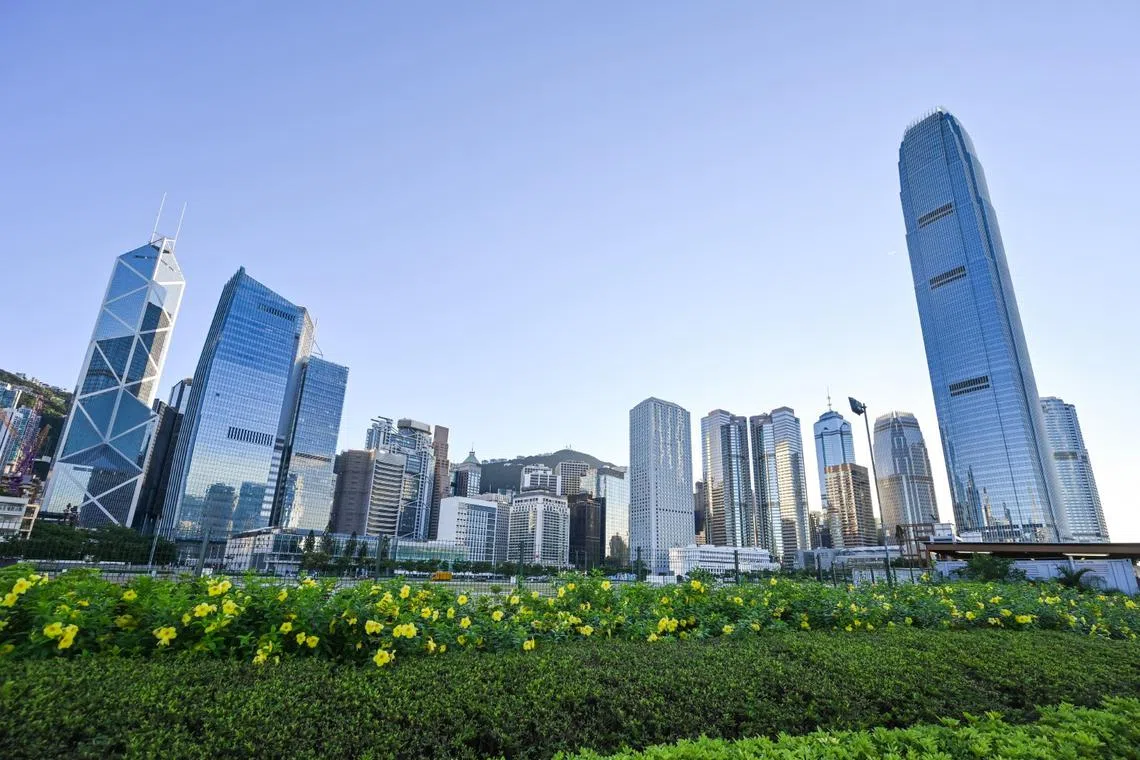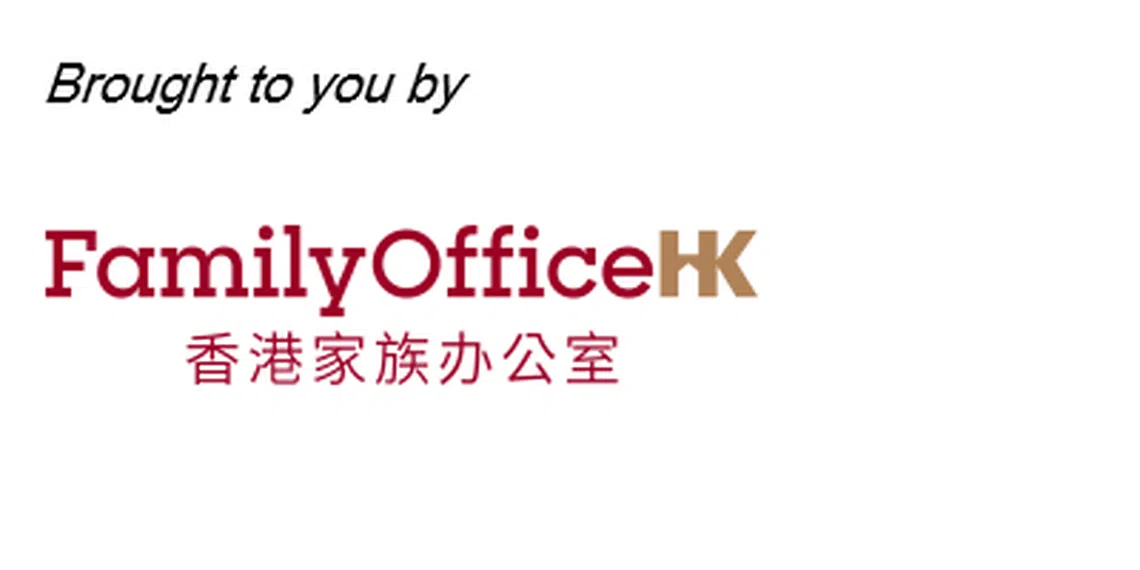Branded Content
Tax incentives, Asian market access: How HK’s financial gateway position is drawing family offices
As global wealth shifts to Asia, Hong Kong’s status as the financial gateway to the region and recent policy initiatives are attracting ultra-wealthy families and investment

Hong Kong is home to over 2,700 single family offices, as at end-2023.
PHOTO: INVESTHK
Follow topic:
Hong Kong is enhancing its attractiveness to ultra-high-net-worth individuals (UHNWIs) and family offices through initiatives detailed in the Policy Statement on Developing Family Office Businesses that was published in March 2023. The Policy Statement aims to strengthen the city’s position as a global hub for family offices and wealth management.
These efforts are underscored by Hong Kong’s recent recognition in global financial rankings. In the latest Global Financial Centres Index 36 Report
In a speech at Lucerne University in June
These achievements and recognition reflect Hong Kong’s position as an ideal destination for global family offices seeking to expand and engage with international markets.
Leading the charge in attracting global family offices to Hong Kong is FamilyOfficeHK, a dedicated team launched in June 2021 under InvestHK, the Hong Kong government’s official investment promotion agency. FamilyOfficeHK offers support to UHNW families establishing family offices – private entities managing the wealth and affairs of the world’s elite – in the heart of Asia’s financial capital.
At the end of 2023, the city was home to over 2,700 single family offices (SFOs), according to the Market Study on the Family Office Landscape in Hong Kong
“Hong Kong is not merely a hub for wealth management,” says Mr Jason Fong, InvestHK’s global head of Family Office. “It is a strategic environment where families can meticulously plan their legacies, engage with global markets, and make impactful investments for the future.”
Competitive tax regime
New policies and incentives, including enhanced tax concessions for funds and SFOs, have made Hong Kong a highly compelling choice for family offices.
Hong Kong boasts one of the most competitive tax regimes globally, featuring no capital gains tax, no dividend tax, and no inheritance tax, with corporate tax rates capped at a mere 16.5 per cent.

With no capital gains tax, dividend tax or inheritance tax, Hong Kong boasts one of the most competitive tax regimes globally. PHOTO: INVESTHK
The city also offers profits tax exemptions for family-owned investment holding vehicles that may not be easy to secure in other parts of Asia.
This favourable environment not only enhances investment returns but also solidifies Hong Kong’s status as a premier destination for family offices seeking to optimise their wealth management strategies.
Mr Anthony Lau, Deloitte Private’s Hong Kong leader, says: “A competitive tax regime is often considered a key factor in a family office’s evaluation process to decide where to set up shop.”
Furthermore, Mr Ho-Pin Tung, Knight Frank’s director and head of Private Office, Hong Kong said in The Wealth Report 2024 by Knight Frank:
The Hong Kong Exchange is also adapting to attract high-growth technology companies, including unicorns, aligning with family offices interested in innovative sectors. As such, the government is exploring the expansion of tax-free investment options beyond traditional financial products, although specific details are still under development.
In addition to tax incentives, Hong Kong is establishing a robust and comprehensive support system
In June 2023, authorities launched the Network of Family Office Service Providers – covering private banks, accounting and legal firms, trusts and other professional services firms, which provide comprehensive services to family offices – to foster a supportive ecosystem and improve communication between the government and industry players.
The Financial Services Development Council has established the Hong Kong Academy for Wealth Legacy (HKAWL) in November 2023 to bolster the city’s expertise in wealth management through education and professional development. The HKAWL serves as a vital platform dedicated to enhancing talent in the family office sector by fostering collaboration, knowledge sharing, and networking among industry professionals. The HKAWL’s mission is to create a vibrant ecosystem for family offices by offering tailored training programmes and resources that address various aspects of wealth management. This includes topics such as family governance, impact investing, philanthropy, and the integration of next-generation wealth owners into family business operations.
Hong Kong is also emerging as a prominent philanthropic hub for global family offices, driven by a combination of strategic initiatives, robust financial infrastructure, and an increasing focus on social impact. Initiatives like HKAWL’s Impact Link – a platform that connects family offices with meaningful charitable projects – help streamline the process for family offices to engage in philanthropy, ensuring that their contributions are directed towards effective causes that align with their values and legacy goals.
Unique access to diversified opportunities
Hong Kong’s position as China’s financial gateway remains one of its most significant advantages in attracting global investors. As the largest offshore renminbi hub, the city offers unparalleled access to Chinese markets and currency-denominated assets. Its integration with the Greater Bay Area, which connects it to Shenzhen, Guangzhou, and eight other major Chinese cities, establishes a dynamic economic zone for cross-border investment. This strategic role positions Hong Kong as a vital bridge between international capital and the extensive market opportunities within mainland China.
Hong Kong’s sophisticated capital markets significantly enhance its allure for investors. The city has proudly retained its status as the global leader in international bond issuance for seven consecutive years, offering affluent investors a wealth of options for portfolio diversification. With a stock market capitalisation surpassing US$4 trillion (S$5.38 trillion) and an impressive average daily turnover exceeding US$14 billion, Hong Kong stands as a dynamic financial powerhouse, presenting unparalleled opportunities for strategic investment.
Ms Rita Chan, Deloitte’s leader for China Hong Kong Government & Public Services Industry, points to several factors driving Hong Kong’s success
Hong Kong: A dynamic gateway
Family offices and asset owners from Asian countries are increasingly drawn to Hong Kong due to its strategic position as a leading international financial hub and its favourable regulatory environment.
The Policy Statement emphasises the Hong Kong government’s commitment to fostering a conducive ecosystem for family offices, offering substantial tax incentives such as profits tax exemptions for family-owned investment holding vehicles that may not be easy to secure in other parts of Asia. Additionally, the city’s proximity to Mainland China offers unparalleled access to one of the world’s fastest-growing economies, allowing other Asian family offices to capitalise on emerging investment opportunities in the region.
Adding to the city’s appeal is its dynamic lifestyle that blends East and West in a unique cultural tapestry. Renowned for its bustling street markets, vibrant nightlife, and world-class dining scene which showcases both traditional Cantonese cuisine and international flavours, Hong Kong’s urban environment not only attracts talent but also enhances the overall quality of life, making the city an exciting place for UHNWIs and their families to enjoy a multitude of rich experiences.
As competition intensifies among global financial centres to attract mobile capital and wealthy individuals, Hong Kong’s comprehensive approach – combining tax incentives, market access, and professional services – appears to be yielding results. The city’s success in attracting family offices could reshape the global wealth management landscape, particularly as Asia’s share of global wealth continues to grow.
Visit this website


